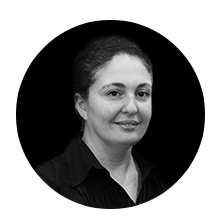Rosacea is a common, and challenging condition affecting millions of people, including many right here in Brooklyn NY. The good news is that it can be controlled, with the help of an experienced skin care professional. Here at Khrom Dermatology, we offer a variety of treatment options. We also work to help our patients better understand the condition, and how to control it. Below are some of the most commonly asked rosacea questions.

Q: Is rosacea a form of acne?
A: No. The symptoms of rosacea can include bumps and pimples that might resemble acne, but they are two distinctly different conditions.
Q: How can I tell the difference between rosacea and acne?
A: Rosacea typically occurs on the face, whereas acne can develop anywhere on the body. Additionally, rosacea has some common symptoms such as thickening skin and generalized redness that are not usually associated with acne. However, both conditions can manifest differently from one person to another. Therefore, self-diagnosis may be inaccurate. If you are unsure, it is best to see a skincare professional.
Q: Why does my rosacea sometimes improve, and then suddenly flare up?
A: Rosacea is often sensitive to internal and environmental factors. Changes in temperature, alcohol consumption, sunlight, stress, spicy foods, and certain cosmetic products are common triggers. However, every case is different, so it can take some time to determine exactly what your triggers are.
Q: Is rosacea contagious?
A: No. Even if you are experiencing severe symptoms, there is no risk of passing rosacea to someone else.
Q: Will rosacea symptoms get better or worse over time?
A: Unfortunately, untreated rosacea tends to worsen with age. However, if you seek treatment and learn to manage it in the early stages, this can be largely avoided.
Book an Appointment
Q: How is rosacea treated?
A: There are many sub-types of rosacea, and every patient is different. Therefore, the treatment for this condition is highly customized. It may include chemical peels, laser therapy, or other procedures along with patient education.
Take control of your skin health
Call Khrom Dermatology at 718-615-4002 and schedule a consultation to learn more about managing and treating rosacea.
Share this Article
Back to Blog Page


